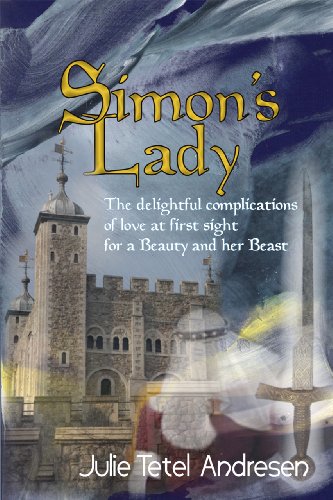Write Good Books: Tips for a Writing Career
I’m preparing to give a talk to the creative writers at Florida International University on April 2. I have five tips for them. I will post them in installments on my blog. My number one tip for a life-long writing career is: Write Good Books.
You’re thinking, “Seriously? What a ridiculously obvious thing to say!”
Let me explain.
Write Good Books: Think Long Term
You improve your chances of having a life-long writing career if you write from the top of your intelligence. If you stay true to your vision. Yes, you have to keep your eye on the market and its trends, if you want to be published. However, be aware: the most important asset you have after your forthcoming book is your backlist.
You want your backlist to provide you with long-lasting income. If you are writing only to trends, your backlist won’t be profitable. What you wrote 5 or 10 or 15 years before will no longer be irrelevant. I have books that I wrote 20 years ago that still sell. You won’t see these titles on any bestseller list, but I don’t care. It’s steady income.

Simon’s Lady continues to sell
Think long term. Think long haul. Bring to the page a story you think will last.
Write Good Books: Be a Life-Long Reader
It shocks me every time I hear a writer say, “I don’t have time to read.”
You have to read. You have to read all the time. The bestseller of the moment. A classic you never got to. Last summer I read Lolita for the first time in my life.
You likely already know there are only 7 plots lines – or 5 or 12, depending on whose schema you adopt. Joseph Campbell’s or Bruno Bettelheim’s or whoever. One such plot line is Voyage and Return. Compare The Odyssey composed over 2000 years ago to Robinson Crusoe published in 1719 to the movie The Martian that came out in 2015. A fresh take is always possible on the oldest of narrative forms.
So, you read to see different authors’ twists and takes on the various given plot lines, how their characters shape and are, in turn, shaped by those plot lines. You read to see other authors’ imagery, to hear their voices, to experience their emotional palettes. You read for ideas, for inspiration, for what you don’t want in your stories, for what does ring true and can be adapted to your voice and your vision.
Reading is writing food.
Write Good Books: Find The Right Editor
Writing is a solitary activity. We all know this. However, it is also the case that an author’s ultimate success – we’re talking about the marketplace – is due to teamwork. The front line of that team is your editor.
Editing is a separate skill and talent from writing. A good editor is not a wannabe writer. It is true that some editors make a transition to writing. Toni Morrison is a good example. However, she couldn’t be her own editor.
I will now quote her to the effect that: A good editor makes a story better without leaving her fingerprints.
When you’re starting out, you need feedback, and a writing group is good place to get it. Of course, when you’re in a writing group, you also have to give feedback. I don’t have an editorial eye. I am clear in my vision, and I can read someone else’s story and get into it. I’ve just said I read all the time. But I don’t have an editorial eye. So, my participation in a writer’s group is pretty useless.
You have to start somewhere, and what you need is someone who understands what you’re trying to do and can help you realize your vision. If you find the right writing group and get good feedback early on in your career, then great. However, eventually, you will need a professional editor. And then it’s a case of finding the one that clicks.
Long story short, I eventually made my way to the editor I have now, and I’ve worked with her on my last 12 stories. She works with all kinds of writers, including New York Times bestsellers. She knows the market, and she’s brutal. But she will also note in the margins: “Here you are writing to your strengths.” Oh, I have writing strengths. Thank you!
The most important thing about my relationship with her is trust. If I get a brutal letter, of course I will immediately think that she’s made a mistake. Then I have to remember she was right about other stories … Then it’s a question of taking a deep breath, pulling up my big girl panties and making the changes. And then I think they were mine all along.
Best thing about having the right editor: you don’t have to take any online reviews to heart. If I have measured up to Selina’s scrutiny, I know I’m good.
Write Good Books: Final Thought
Readers will forgive one bad book. They will not forgive two bad books in a row.
So, write good books.
Natalie Goldberg, featured in the title image, is an excellent resource for writing inspiration.
See also: The Lifelong Writing Life: A Five-Pointed Star
Categorised in: Blog, Writing, Writing Tips
This post was written by Julie Tetel Andresen
You may also like these stories:
- google+
- comment


